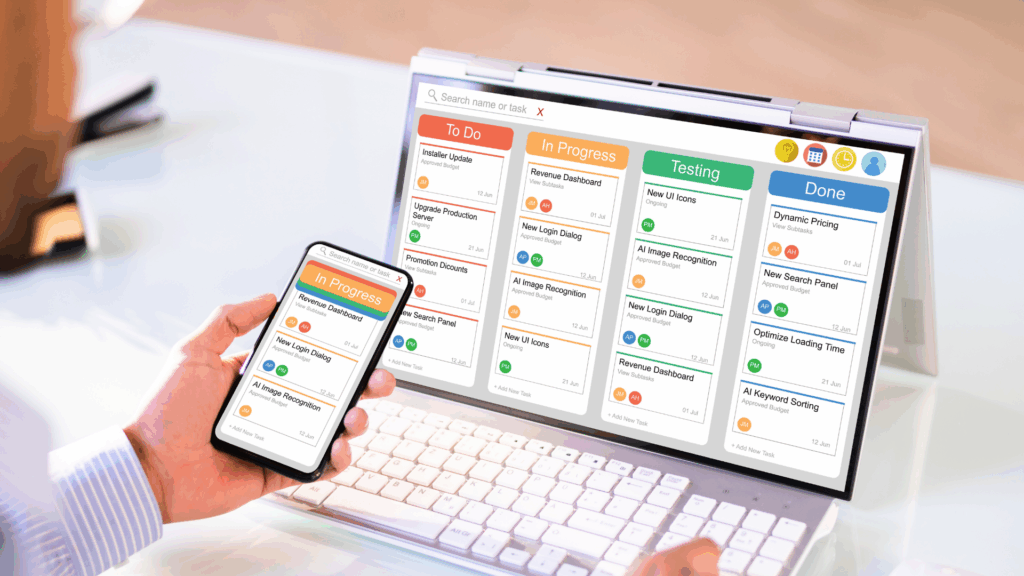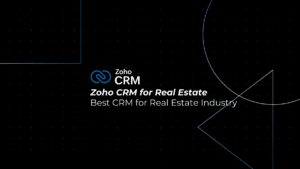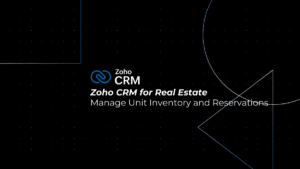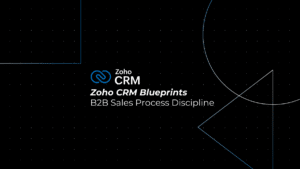Are you a business decision maker looking for the best odoo consultant to drive digital transformation in your organization? Selecting the right odoo implementation partner is crucial—not only for a smooth ERP rollout but for long-term growth. In fact, research shows that over 60% of ERP projects stumble due to mismatched consultant expertise, underscoring the need for a methodical selection process. This guide delivers actionable insights on selecting the ideal consultant, blending technical prowess with strategic alignment to meet your unique business needs.
Table of Contents
ToggleUnderstanding the Consultant Landscape

Why Your Choice Matters
When your organization embarks on an ERP journey with odoo consultant solutions, partnering with the right expert can mean the difference between a transformative experience and project setbacks. A capable consultant not only implements the software but also ensures it aligns with your business processes and industry-specific requirements. With nuances in service delivery—ranging from onsite to offshore deployment—the variations can impact both cost and communication.
Types of Consultants: A Comparative Look
The consultant landscape broadly divides into three models:
| Model | Pros | Cons |
|---|---|---|
| Onsite | Real-time collaboration, better cultural alignment, in-person training sessions | Higher operational costs; more limited pool of experts |
| Offshore | Significant cost savings, round-the-clock development potential | Time-zone challenges, potential communication gaps |
| Nearshore | Balanced cost-effectiveness, overlapping working hours | Moderate pricing with regional limitations |
Expertise and Technical Proficiency
One of the first things to ascertain is whether a consultant holds official certifications. A Certified odoo consultant indicates that they adhere to industry benchmarks and have access to the latest features and support channels. For businesses across odoo egypt, working with an official partner reduces risks while ensuring compliance with best practices.
Not every consultant comes with a one-size-fits-all approach. Decision makers must identify professionals that understand the intricacies of their industry. For instance, a retail company may benefit from a consultant with proven expertise in managing point-of-sale systems, inventory modules, and logistics management. In contrast, manufacturing firms might require someone who is adept at customization and integration of supply chain modules.
Assess whether the consultant has handled custom integrations and modifications in the past. Real-world examples of integrating Odoo with legacy systems or third-party software can be a reassuring indicator of their capability to serve as an erp consultant who adds tangible value beyond mere installation. Look for case studies or detailed project narratives demonstrating the consultant’s ability to handle unexpected challenges during integration.
- Request a detailed portfolio showcasing previous ERP implementations tailored to industries similar to yours.
- Check if the consultant offers white-labeled versions of past projects or creative solutions to common industry challenges.
- Ensure they communicate clearly about custom development as part of the proposal discussion.
Cost vs. Long-Term Value Considerations
Focusing on ROI Over Price
While cost is always a critical factor, the decision should lean towards long-term value rather than the lowest bid. Offshore options might appear budget-friendly but may introduce hidden costs such as extended timelines, communication barriers, or misaligned deliverables. Decision makers should evaluate proposals based on projected return on investment (ROI), quantifiable benefits post-implementation, and overall support commitment.
Understanding Total Cost of Ownership (TCO)
When budgeting for an ERP solution, include not only the upfront consultancy fees but also expenditures linked to training, post-launch support, and system upgrades. A comprehensive breakdown of TCO often reveals that a slightly higher initial investment can pay dividends over time through enhanced efficiency, streamlined operations, and reduced downtime.
Real-World Application:
Consider a mid-range manufacturing firm in Egypt that opted for a slightly higher-priced on-site consultant. Over the course of a year, the tailored strategy and closer collaboration resulted in a 25% increase in operational efficiency, justifying the upfront costs when compared to peers who selected lower-cost offshore options.
- Ask candidates to provide a detailed cost breakdown and roadmap illustrating maintenance costs and future scalability.
- Compare proposals to understand both the qualitative and quantitative benefits.
- Seek out testimonials that comment on actual savings, operational improvements, and long-term partnerships.
In-Depth Project Management Approach

Structured Methodologies Matter
Effective project management is paramount for successful ERP implementations. Whether the consultant deploys Agile, Waterfall, or hybrid methodologies, clear communication around milestones and deliverables is essential. Early involvement with your internal team during planning ensures that your business processes are accurately mapped into Odoo’s framework.
Key Project Phases:
- Planning and Requirements Gathering: Ensure there is a detailed project blueprint, including timelines, risk analysis, and resource allocation.
- Design and Customization: Oversee workshops that facilitate system design tailored to your specific needs.
- Implementation and Integration: Monitor how the consultant integrates existing systems with Odoo modules—this is where real-time adjustments may be needed.
- Testing and Validation: Ensure multiple testing cycles accompanied by stakeholder reviews to fine-tune configurations.
- Go-live and Post-Launch Support: A well-documented handover and training program are essential for smooth operational transition.
Practical Example:
A success story can be drawn from a commercial firm in the Middle East that underwent a phased ERP transition. By employing iterative Agile methodologies, the consultant was able to course-correct in early phases, leading to a project delivery that met budget and time targets while accommodating evolving business needs.
- Ask for a sample project plan during initial discussions, including risk mitigation strategies.
- Request real timeline examples and how contingencies were managed in previous projects.
- Confirm that the consultant uses collaboration tools and progress tracking methods that align with your internal processes.
Communication: The Backbone of Successful Implementation
An often-overlooked element in consultant selection is their communication style. Effective communication mechanisms are critical to addressing unexpected challenges, clarifying requirements, and delivering continuous updates. Decision makers need to ensure that the chosen consultant establishes a robust framework for information sharing.
When working with an odoo consultant in Egypt, cultural alignment plays a key role in ensuring smooth interactions. Consultants who share similar cultural business practices or have local market expertise are likely to integrate well with your existing teams.
Regular Updates and Transparent Reporting:
- Set clear expectations for progress reporting, whether weekly status updates or milestone assessments.
- Insist on open channels for feedback—email, instant messaging, or regular video calls can help bridge any gaps.
- A transparent escalation mechanism should be in place for resolving unexpected issues promptly.
Real-World Example:
A notable scenario involved an Egyptian retail chain that initially faced delays due to miscommunication with an offshore team. Switching to a nearshore consultant who offered bilingual support and regional market insights led to more synchronized updates and a subsequent rise in project transparency and efficiency.
- During initial discussions, gauge the consultant’s responsiveness by testing their turnaround times for queries.
- Ask for references that specifically highlight communication strengths and weaknesses.
- Ensure you have a dedicated point of contact responsible for coordinating between their team and your internal staff.
Post-Implementation Support and Long-Term Partnership

Ensuring Continued Success Beyond Deployment
Implementation is only part of the journey. An odoo implementation partner should also provide comprehensive post-implementation support that covers system maintenance, troubleshooting, and ongoing training sessions. This long-term relationship is critical to maintaining system performance and adapting to evolving business environments.
Training and Upskilling:
- Ensure that the consultant offers structured training programs to equip your teams with the necessary skills to operate the ERP system.
- Regular refresher sessions and updated documentation can significantly ease the transition for end users.
Maintenance, Upgrades, and Trouble Resolution:
- A well-documented service level agreement (SLA) should define timelines for resolving issues, planning upgrades, and providing emergency support.
- Continuous monitoring of system performance can pre-empt minor issues before they escalate into major problems.
Real-World Case Study:
Consider a multinational distributor that, after implementing Odoo, entered into a six-month support contract with their consultant. The regular performance reviews, combined with proactive system enhancements and custom updates, resulted in a smoother transition and improved operational reliability.
- Verify that the consultant offers ongoing training and support packages.
- Ask for detailed examples of how they handled post-launch issues in past projects.
- Ensure the proposal includes clear SLAs outlining response times, maintenance schedules, and upgrade protocols.
Due Diligence and Identifying Red Flags
Importance of Comprehensive Vetting
Before finalizing any contract, due diligence is a must. This involves critically assessing the consultant’s track record, obtaining references, and reviewing case studies. Business decision makers should use multiple layers of inquiry to ensure the consultant is genuinely experienced and aligned with your objectives.
Reference and Case Study Verification:
- Interview past clients to understand the consultant’s performance, especially regarding projects similar in size and scope to yours.
- Look for verifiable case studies that demonstrate measurable improvements in productivity, cost savings, or system improvements post-implementation.
Red Flags to Watch For:
- Vague proposals lacking detailed timelines or clear deliverables are a major warning sign.
- Consultants who are hesitant to share past mistakes or challenges may not have the transparency needed for a trusted partnership.
- A lack of clear industry-specific examples or resistance to discussing customization projects could indicate limited experience.
- Request a list of client references and actively contact them.
- Ask for insights on how they overcame challenges in previous implementations.
- Ensure that all contract details, including responsibilities, scope, and timelines, are explicitly documented.
Strategic Alignment: More Than Just Technical Fit
The implementation of Odoo is as much a strategic business decision as it is a technical one. Your chosen odoo implementation partner should be well-versed in your industry’s business processes and able to align technical capabilities with corporate strategies. This strategic alignment can be the catalyst for improved operational efficiency and competitive advantage.
Evaluating Strategic Fit:
- Confirm that the consultant demonstrates an understanding of key business metrics that drive your industry, be it sales, supply chain efficiency, or customer satisfaction.
- Assess whether their implementation strategy includes measurable KPIs that correlate with business performance metrics.
- Ensure alignment with your long-term growth objectives by discussing future scalability plans, cross-department integrations, and evolving technology requirements.
Practical Insights:
For instance, a growing retail company in Egypt might find that an odoo consultant with a background in omnichannel sales implementation can offer richer insights—integrating online and offline sales processes that drive better customer engagement and revenue growth.
- Organize strategy meetings early in the consultation phase to ensure alignment on key priorities.
- Request that the consultant provides strategic insights on how Odoo can address specific industry challenges and opportunities.
- Ensure that the consultant outlines potential future developments in the ERP system that align with your evolving business strategies.
Best Practices and Expert Tips for Selecting an odoo consultant

Develop a Comprehensive Evaluation Checklist
Before engaging with potential consultants, create a checklist that encompasses the detailed criteria mentioned above. This list should include points on technical expertise, cost structure, project management methodologies, post-implementation support, communication protocols, and strategic alignment.
Step-by-Step Guide to Evaluate Candidates:
- Define your business objectives and requirements clearly.
- Research potential candidates and verify their certified partnership status with Odoo.
- Invite shortlisted consultants for initial meetings, focusing on both technical and cultural compatibility.
- Request detailed case studies and references relevant to your industry.
- Evaluate communication styles and project management approaches during preliminary presentations.
- Compare comprehensive proposals and analyze both cost estimates and value propositions.
- Engage in thorough contract reviews to clarify roles, deliverables, timelines, and post-implementation support.
Do This, Not That:
- Do focus on consultants with transparent documentation and explicit timelines.
- Don’t be swayed solely by a low bid if it undermines long-term value or strategic compatibility.
- Do ask for customized solutions that align with your industry.
- Don’t rely on generic proposals that do not address your specific operational challenges.
Expert Tip:
In complex implementations, consider a phased engagement model where preliminary phases focus on pilot testing. This approach allows you to evaluate the consultant’s performance and make any necessary adjustments before fully committing to a long-term partnership.
Real-World Implementation Examples and Case Studies
Case Study 1: Retail Chain in Cairo
A well-known retail chain in Cairo needed to upgrade its inventory management and point-of-sale systems. The consultant, recognized as a leading odoo consultant in Egypt, deployed a nearshore team with expertise in retail operations. Through a carefully phased approach and iterative Agile methodology, the project achieved:
- A 30% reduction in inventory errors within the first six months.
- Enhanced team training sessions that led to a smoother user transition.
- A cost-benefit ratio that justified the decision to move forward with a nearshore partnership over less costly offshore alternatives.
Case Study 2: Manufacturing Firm’s Digital Shift
A manufacturing company facing complex supply chain challenges opted to partner with an odoo implementation partner experienced in large-scale industrial deployments. Highlights of their collaboration included:
- Custom integration with legacy production systems, driving a 20% boost in process efficiency.
- A comprehensive project plan with clear milestones ensuring timely rollouts and consistent updates.
- A post-implementation support plan that effectively addressed growing pains and future scalability concerns.
Both scenarios underline the importance of aligning technical capability with strategic business goals and detailed project management—an approach that ultimately drives enhanced performance and substantial ROI.
Final Thoughts and Moving Forward
Summarizing the Essentials
Choosing the right odoo consultant in Egypt isn’t merely about selecting a vendor—it’s about forming a strategic partnership that can drive end-to-end transformation. From verifying expertise and certifications to assessing cost implications and ensuring robust project management, each step in this guide is designed to help decision makers navigate complexities and avoid common pitfalls.
Empowering Your Decision Process
Remember, your ideal consultant should not only address technical needs but also embrace your business’s unique culture and strategic ambitions. Regular vendor evaluations, thoughtful reference checks, and clear communication standards are your best tools in ensuring long-term success.
Expert Tip:
Stay updated on industry trends and technology advancements post-implementation to continuously benefit from new capabilities and innovative solutions. In doing so, your organization can maximize the ROI of your Odoo implementation, staying ahead in a competitive market.
Conclusion
In summary, for business decision makers navigating the complex world of ERP implementations, selecting an odoo consultant in Egypt demands a balanced examination of technical skills, strategic alignment, and long-term support capabilities. From the initial phases of due diligence to the final stages of post-implementation support, every step should reflect a commitment to not only solving immediate operational challenges but also paving the way for future growth.
Adopt these best practices, evaluate potential partners with both quantitative and qualitative rigor, and remember—the right consultant will deliver not just an installation, but a strategic evolution of your business processes that drives real-world results. Happy evaluating, and here’s to your journey toward a transformative ERP experience with Odoo!
Choosing the right Odoo consultant can make or break your project.
With years of hands-on experience, PyramidBITS is the trusted Odoo partner for Egyptian businesses.
Contact us now for a free consultation and let’s turn your Odoo vision into reality—without the guesswork!



